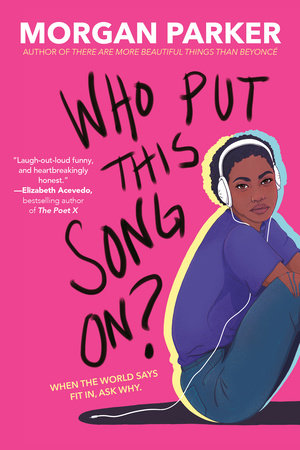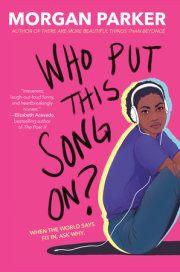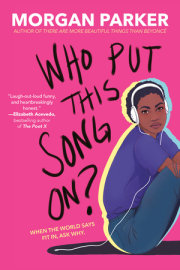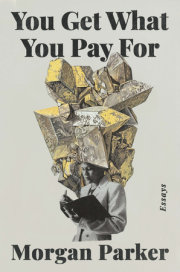Susan
This is a story about Susan. Draped permanently on the back of Susan’s chair is a sweater embroidered with birds—that type of lady. She has this thing I hate, where she’s just always medium, room temperature. Susan looks like a preschool teacher with no emotions. She smiles, she nods, but she almost never laughs or speaks. That might be the number one thing I hate about coming here. She won’t even laugh at my jokes! I know that life with me is a ridiculous hamster wheel of agony, but I’m kind of hilarious, and I’m just trying to make this whole situation less awkward.
I’m the one who begged for my first session, but I was desperate, and it was almost my only choice. Now that I’m actually doing this, I hate it. I just want Susan to buy my usual pitch: I am okay. I am smart and good. I am regular, and I believe in God, and that means I am happy.
By the way, of course my therapist’s name is Susan. It seems like everyone I meet, everyone telling me how to be, is a Susan.
I don’t trust a Susan, and I don’t think they trust me either.
I don’t like Susan, but I want to impress her—I’m usually so good at it.
But this is what I mean about the bird sweater. I know the bird sweater is awful, and just uncool and unappealing in every way—it doesn’t even look comfortable. But other Susans like it, and generally all Susans do. It is a sensible piece of clothing; it is normal, and it makes sense. Wouldn’t it be so much easier if I liked the sweater, if I just wore the fucking sweater and didn’t make such a big deal out of everything?
This Is a Story About Me
This is a story about me, and I am the hero of it. It opens with a super-emo shot of a five-foot-nothing seventeen-year-old black girl—me—in the waiting room at my therapist’s office, a place that I hate. It’s so bright outside it’s neon, and of course the soundtrack is Yankee Hotel Foxtrot by Wilco, because I have more feelings than anyone knows what to do with.
The smell in here is unlike any other smell in the world, some rare concoction of pumpkin pie–scented candles and every single perfume sample from the first floor of Macy’s. I bet Susan Brady LCSW decorates her house with Thomas Kinkade paintings and those little figurines, cherubs dressed up for various occupations, I don’t know. The other thing I hate about coming here is the random framed photo of, I believe, Bon Jovi on the coffee table, which also features a wide assortment of the corniest magazines of all time.
(White people love Bon Jovi. When Marissa and I went to Lake Havasu with Kelly Kline, because that’s what white people do here in the summer, Bon Jovi was the only thing her family listened to—that freaking scratched-up CD was actually stuck inside the thing on their boat. I had a moderate time at “the Lake,” except for when I had to explain my summer braids to Kelly and Marissa, for probably the eight hundredth time, to justify why I didn’t have a hairbrush to sing into. They made me sing into a chicken leg because of course. I was also shamed for not knowing any Bon Jovi lyrics. That was around this time last summer, but it feels like a past life.)
(Another thing I hate about coming here is how I have to think about everything I’ve lost, everything I’ve done wrong, and everything I hate about being alive.)
The thing I like about it here is that there’s Werther’s.
Susan opens the door and spreads her arms to me in a weird Jesus way, the sleeves of her flowy paisley peasant top billowing at her sides. She has kind of a White Auntie thing going on, or a lady-who-sells-birdhouses-at-the-church-craft-fair thing: a sad squinty smile, a dull brown bob, a gentle cadence to her voice. I can tell she’s used to talking to children—probably rich white children—and as I stiffly arrange myself on the couch in her office, I’m suddenly self-conscious about my largeness, my badness. I just feel so obvious all the time.
It’s like that song “Too Alive” by the Breeders. I feel every little thing, way more than regular people do.
“So, how are you doing today?” Susan asks too cheerily, like a hostess at Olive Garden or something. “Where are you on the scale we’ve been using?”
(I feel so deeply it agonizes me.)
“I’m okay. I guess on the scale I’m probably ‘pretty dang bad,’ but better than yesterday and still not ‘scary bad.’ ”
(Now, probably to the soundtrack of Belle and Sebastian’s “Get Me Away from Here, I’m Dying,” there’s a longish montage of me zoning out, imagining the lives of everyone I know. Even in my dreams, it’s so easy and fun for them to exist.)
“Are you still taking the art class?”
“Yeah. Every Tuesday.”
“That’s wonderful. And how are you liking it?”
“It’s fine. Sort of boring, but . . . I guess it takes my mind off things.”
“Do you want to talk about what’s on your mind the other times?”
“Um, not really,” I chuckle, in my best joking-with-adults voice. The AC churns menacingly, like it always does, taunting me. Susan, with her wrinkled white cleavage, unmoving and unrelenting. Susan doesn’t play.
I think about grabbing a Werther’s from the crystal bowl but don’t, even though I want one. (Will Susan write Loudly sucks on Werther’s in my file as soon as I leave, right next to Is probably fine; just being dramatic?)
“I guess just people at school. Why I’m so different.”
“Can you say a little more about that? What are the things that make you feel so different?”
“I don’t know.” My chest is welling up with everything I’ve been trying to stuff into my mind’s closet. “I can’t get happy.”
It happened only three weeks ago, but since my “episode,” no one in my family has uttered the word suicidal. It’s easier not to.
I glance down at my Chucks, trying to divert my eyes from Susan. Stare at a lamp, the books stacked on her shelves. I spot a spine that reads Healing, Recovery, and Growth, and immediately feel ridiculous. Sweat pools in my bra. This isn’t gonna work.
“Morgan, why are you so angry with yourself?”
I clench my jaw. “I’m not!” This is a lie, but it hasn’t always been. “I’m annoyed,” I admit, sighing, “and embarrassed.”
“Why are you embarrassed?”
“Just—I don’t know . . . ,” I whine. Words begin to spill and spew from my lungs like a power ballad. “Like, why am I the only one I know who has to go to a shrink? How did I become the crazy one? I have to be the first one in the history of our family and our school to go to therapy?” I bristle. “I’m pissed I can’t just get over stuff the way everyone else seems to.”
I purse my lips resolutely and fold my arms tight against my boobs. Your ball, Susan. She just nods and squints like she has no clue what to do with me.
I’ve asked God and Jesus and all their other relatives to “wash away my sins,” but it doesn’t feel like Jesus is living inside me—I can’t even imagine what that would feel like. I’m so full up with me, me, stupid me.
“Mmm . . . ,” she finally grunts. “I see.”
Fighting the near-constant urge to roll my eyes all the way to the back of my skull, I snatch up and devour a Werther’s.
Copyright © 2019 by Morgan Parker. All rights reserved. No part of this excerpt may be reproduced or reprinted without permission in writing from the publisher.








